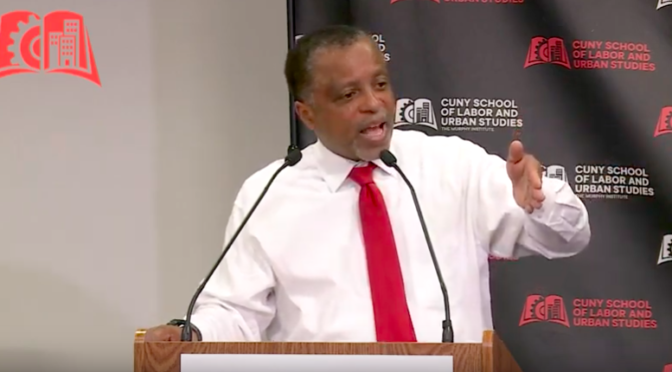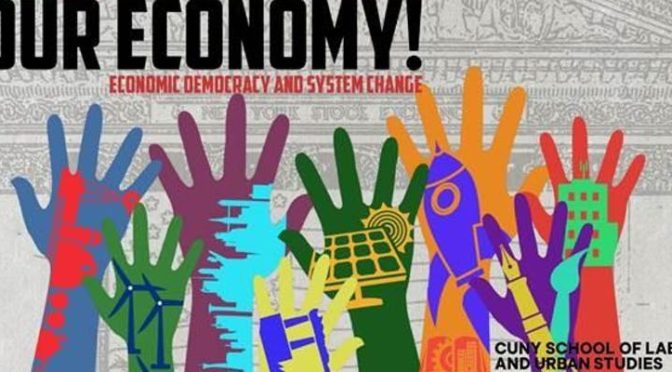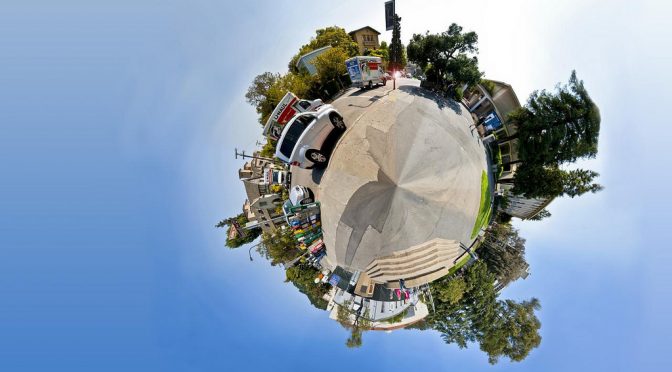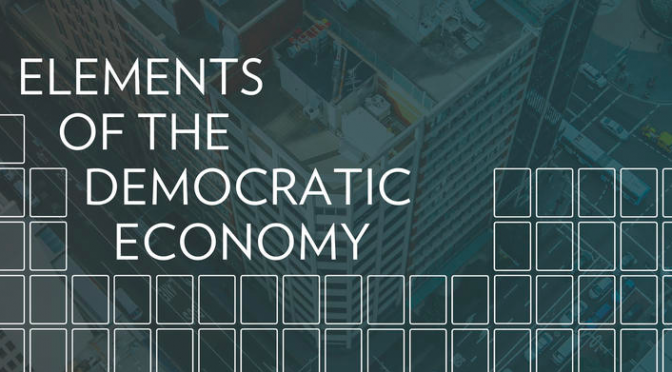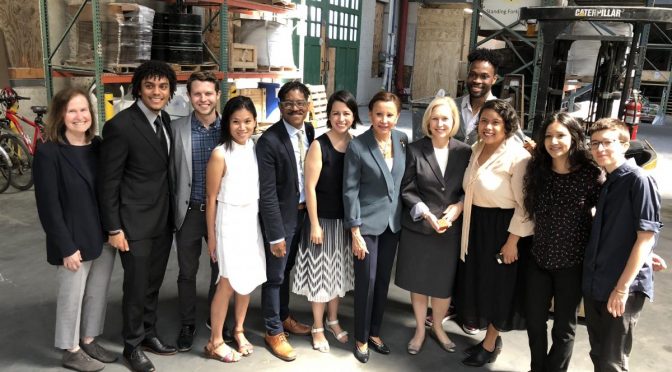By all accounts, “Our Economy!”—the first-ever faculty conference of the CUNY School of Labor and Urban Studies—was an overwhelming success! More than 300 individuals attended, representing over 100 institutions and organizations. That number included dozens of SLU staff, faculty, and students. More than 50 speakers and presenters participated on 18 panels. And … an additional 500+ people viewed the livestream event on Facebook! Many connections and relationships created, fostered or were strengthened by this collaborative event.
Hungry for more Economic Democracy? Visit the OUR ECONOMY Dropbox to access papers and Powerpoint presentations submitted by conference speakers. Also, visit the Youtube channel of the CUNY School of Labor and Urban Studies to view slideshows and videos from the conference.
And in case you missed the amazing closing performance by the “Resistance Revival Chorus?” or just want to relive the magic, check it out here!

